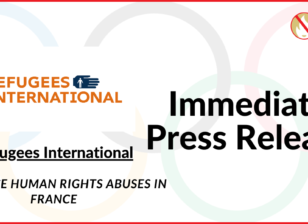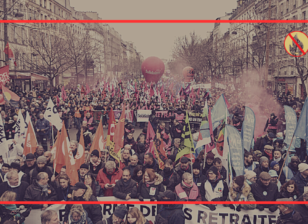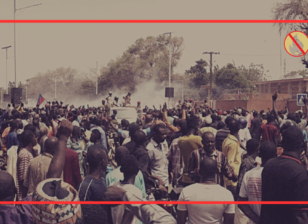Never-Ending Exploitation: How France Still Dominates Africa?
The peril of colonialism was highlighted by Kwame Nkrumah, the former president of Ghana who said, “A State in the grip of neo-colonialism is not master of its own destiny. It is this factor which makes neo-colonialism such a serious threat to world peace.” In this regard, here we are talking about the relationship between France and its former African colonies. Undoubtedly, from a historical perspective, the nature of their relationship is complex and multifaceted one that is marked by political influence, economic dominance, and cultural impact. The development and sovereignty of African nations are in question pointing out the ongoing exploitation and its implications as the legacy of colonialism continues to shape France-Africa relations.
Economic Exploitation and Colonial Pact
In the modern capitalistic world, economic exploitation is prioritized as a tool for oppression, as compared to political exploitation. In our analysis, the economic exploitation of France in its former colonies in Africa is a prominent theme. The continuous underdevelopment of these former colonies has been criticized with the view to the colonial pact, which was established through deliberate economic policies. This pact involved using the CFA Franc as a means of control, maintaining a French monopoly on trade, with the sole purpose of enforcing the dependency of African economies on raw material exports. Critics believe that this system prevents African countries from achieving true economic independence which is their fundamental right of being sovereign. Moreover, because of this pact, the cycle of poverty perpetuates in these countries.
Political Influence and Military Presence
The political influence of France in Africa has always been a source of rising controversy. This analysis offers instances of intervention by France in African political affairs by supporting leaders who align with the interests of France. Moreover, there are doubts about the motives of the French military presence in the Sahel region. On the other hand, the situation definitely raises questions about France’s motivations. Though France claims that its military operations are for the purpose of eradicating terrorism, critics are of the view that they are aimed at maintaining a form of control over African nations.
Cultural Impact and Linguistic Influence
The cultural impacts of French colonialism are another important aspect that should be considered in our discussion. There is no denying the fact that the forced imposition of French culture and language during the colonial era has left a long-lasting influence on African societies. Though the French language is serving as a lingua franca in various African countries, critics argue that it is contributing to the erosion of indigenous languages and cultures in these regions.
Economic Relationship and Debt
A renowned philosopher Jones H. Jones once said, “One of the greatest disservices you can do a man is to lend him money that he can’t pay.” This shows the importance of understanding how economic debts are used as a means to exploit individuals and nations. Let us put some light on the economic issues pertaining to the African countries, and let us discuss how much money France derives from Africa. France is a major exporter of arms, selling yearly for about €16 billion euros, and less than 10% of it is sold to French-speaking African countries. On the other hand, one research estimates that around 14 African Countries are forced to pay colonial taxes. The fairness and implications of the colonial pacts have led to debates as it involves depositing foreign currency reserves by African countries into the French treasury. Moreover, African countries ability to invest in their own development has been criticized for being hampered by the practice of repatriating funds.
Resistance and Change
There have been observed some instances of resistance and growing discontent among African people which shows that the African population is concerned about the forced imposition of colonial policies. For instance, the uprisings and protests especially by youth in countries like Senegal highlight a growing awareness of the role of France in perpetuating exploitation and inequality. The emergence of new global players and a dynamic geopolitical landscape may also impact the influence of France in Africa.
Alternate Scenario: What if Africa Was Never Colonized?
The analysis does not explore what Africa would look like in an optimistic hypothetical scenario, but it does explore what Africa would look like without colonization. Many historians and scholars believe that the history, culture, and economic development of the continent would have been different and far more positive if colonization never had occurred. A scenario without colonization might have seen nurturing of indigenous cultures, evolving of different economic systems, and potentially reducing the instances of external influence.
To Wrap Up the Analysis
All in all, the analysis of the domination of France in former African colonies sheds light on an unceasing and complex issue. French and African relations particularly related to economic, political, and cultural dimensions keep on impacting the sovereignty and development of the continent. As the nations of the African continent navigate the challenges of the 21st century, seeking political and economic autonomy as well as grappling with historical legacies still remains a central concern.





